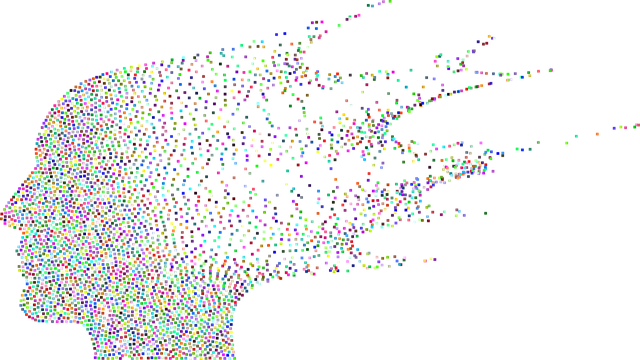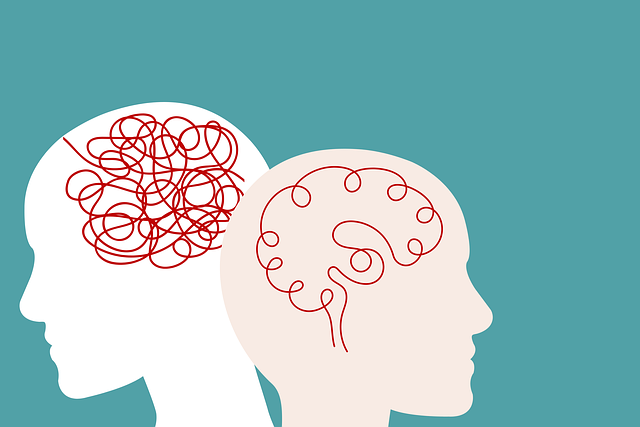Centennial Interpersonal Issues Therapy (CIIT) is a comprehensive approach addressing interpersonal difficulties that significantly impact mental health conditions like anxiety, depression, and trauma. Through specialized programs like Stress Management Workshops and Mental Wellness Podcast Series, CIIT equips individuals with effective social skills to navigate relationships confidently. Their Public Awareness Campaigns Development fosters a supportive environment prioritizing mental wellness, enhancing overall well-being. CIIT's holistic approach combines community outreach, self-esteem improvement, structured exercises, and mindfulness techniques to empower clients in social interactions, reduce stress, and prevent relapses, ultimately fostering resilience and long-term recovery.
Social skills training is a powerful tool for individuals navigating mental health conditions, offering a path to improved well-being and enhanced connections. This article delves into the intricate relationship between social skills and mental health, exploring specific challenges faced by those with conditions like anxiety or depression in interpersonal interactions. We introduce Centennial Interpersonal Issues Therapy (CIIT) as an innovative approach to skill development, detailing effective strategies for training. Real-world success stories from CIIT programs highlight its impact on transforming lives.
- Understanding the Connection Between Social Skills and Mental Health
- Identifying Challenges in Interpersonal Interactions for Individuals with Mental Health Conditions
- The Role of Centennial Interpersonal Issues Therapy (CIIT) in Skill Development
- Strategies and Techniques for Effective Social Skills Training
- Real-World Application: Success Stories from CIIT Programs
Understanding the Connection Between Social Skills and Mental Health

Social skills and mental health are intrinsically linked, with interpersonal issues often playing a significant role in various mental health conditions. Many individuals struggling with anxiety, depression, or trauma may experience challenges in social situations, leading to isolation and exacerbating their symptoms. For instance, someone with social anxiety disorder might find it difficult to initiate conversations or engage in group activities, which can negatively impact their overall well-being and quality of life.
At the Centennial Interpersonal Issues Therapy center, we recognize that addressing these interpersonal challenges is a crucial component of holistic mental health treatment. Our specialized programs, such as Stress Management Workshops Organization and Mental Wellness Podcast Series Production, aim to empower individuals with effective social skills to navigate interpersonal relationships more confidently. Additionally, through Public Awareness Campaigns Development, we strive to foster a supportive environment where people can learn, grow, and connect while prioritizing their mental wellness.
Identifying Challenges in Interpersonal Interactions for Individuals with Mental Health Conditions

Individuals with mental health conditions often face unique challenges when it comes to interpersonal interactions. These challenges can range from social anxiety and depression to more severe issues like psychosis or bipolar disorder, each presenting distinct barriers to forming connections and maintaining relationships. Centennial interpersonal issues therapy is designed to help individuals navigate these complexities, offering a safe space to explore and understand their experiences.
Trauma support services play a crucial role in this process, as many mental health conditions have their roots in traumatic experiences. A well-implemented community outreach program can facilitate access to these services, fostering an environment where individuals feel understood and supported. Additionally, focusing on self-esteem improvement is essential, as low self-worth often exacerbates interpersonal difficulties. Through therapy, individuals learn coping mechanisms that enhance their social interactions and overall well-being.
The Role of Centennial Interpersonal Issues Therapy (CIIT) in Skill Development

Centennial Interpersonal Issues Therapy (CIIT) is a highly effective approach to social skills training, particularly tailored for individuals with mental health conditions. This therapy focuses on identifying and resolving interpersonal issues that often contribute to or exacerbate symptoms of depression and other common mental health disorders. By addressing these underlying problems, CIIT empowers clients to develop healthier social interactions and communication strategies.
In the context of risk assessment for mental health professionals, CIIT offers valuable tools to prevent relapses and promote long-term recovery. Through structured exercises and mindfulness techniques, individuals learn to navigate social situations more effectively, reducing the impact of stress and triggering factors. This proactive skill development is key in depression prevention, as it enables individuals to build resilience and maintain their mental well-being in high-pressure environments.
Strategies and Techniques for Effective Social Skills Training

Social Skills Training for Mental Health Conditions
Effective social skills training involves a multi-faceted approach tailored to address the unique interpersonal challenges faced by individuals with mental health conditions, such as those seeking Centennial Interpersonal Issues Therapy. Techniques often include role-playing scenarios that help participants practice and refine their communication strategies in safe, controlled environments. This dynamic process encourages active engagement and immediate feedback, fostering a deeper understanding of nonverbal cues and emotional expression.
Integrating Self-Care Practices and Emotional Intelligence is central to successful training. By teaching mindfulness techniques and promoting healthy coping mechanisms, individuals gain better control over their reactions in social situations. Additionally, Trauma Support Services can be incorporated to address the specific needs of those with a history of trauma, ensuring that social skills development occurs within a supportive, empathetic framework.
Real-World Application: Success Stories from CIIT Programs

Social skills training has proven to be a game-changer in many individuals’ journeys towards managing their mental health conditions. When integrated into therapeutic programs like Centennial Interpersonal Issues Therapy (CIIT), it offers practical, real-world applications that translate into improved daily lives. Success stories from CIIT programs highlight the effectiveness of teaching and reinforcing social skills tailored to individual needs. These skills empower participants to navigate interpersonal interactions with greater confidence and resilience, fostering healthier relationships and enhancing overall well-being.
For instance, many clients have reported significant improvements in their ability to manage stress and practice mindfulness meditation as a result of CIIT’s focused approach on social dynamics. This not only benefits their mental health but also encourages active participation in advocacy for better mental health policy analysis and awareness. Real-world application through CIIT underscores the importance of combining therapeutic techniques with practical life skills, ultimately enabling individuals to thrive in both personal and professional spheres.
Social skills training, particularly through evidence-based approaches like Centennial Interpersonal Issues Therapy (CIIT), plays a pivotal role in enhancing mental health outcomes. By addressing specific interpersonal challenges, CIIT empowers individuals to navigate social situations more effectively, fostering better relationships and improved overall well-being. The real-world success stories from CIIT programs underscore the significant positive impact this therapy can have on individuals living with mental health conditions, offering hope and a path to more fulfilling lives.














